“Football is a universal language”. This phrase gains even more strength with each new interview carried out in the context of the Diversity on the Field project: LGBT+ Football. The project started in March 2020 and is led by the Brazilian Football Reference Center (CRFB) team.
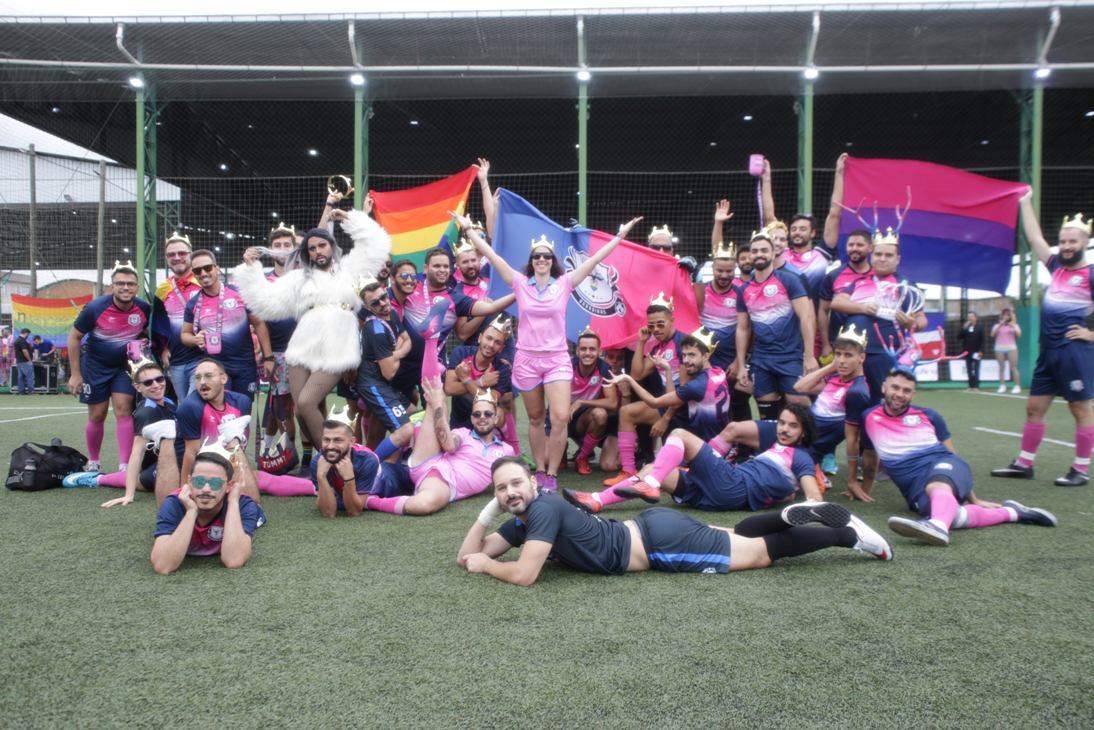
This is not the Football Museum’s first LGBTQIA+ sport-related project. In May 2017, in partnership with Intermuseus and as part of the program for the 15th National Museum Week – IBRAM, the CRFB Library and Media Library hosted the Unspeakable Violence meeting. Based on the theme “Museums and controversial stories: saying the unspeakable in museums”, members of LGBTQIA+ collectives, researchers and athletes brought reflections on the representation of gender within football and the museum itself. The event resulted in a mini-documentary and a debate on how to increase the visibility of LGBTQIA+ struggle and history in the collection.
When we asked the interviewees the reasons why they played, their most memorable memories and what football meant to each one, it was possible to see everyone’s eyes shine, without exception. For Ale Souza, a member of Natus Futebol Clube (SP), football represents the possibility of “being a man, with all the characteristics I have, full in society”.
For Bernardo Gonzales, a male transsexual player, football has always been present in his life and is one of the ways of experiencing and claiming the occupation of certain spaces. For Lucas Bertullino, a member of Cangayceiros Futebol Clube (CE), playing in the team is more than just fun: it’s being part of a space of inclusion and welcome. We are not used to generalizations, but if there is a way to genuinely synthesize the experiences shared in this project, it’s this: for the interviewees, football is a way of celebrating their own existence, as well as that of their teammates.
Nothing more coherent, then, than celebrating this project today, on International LGBT+ Pride Day. For this, we brought a small compilation of curiosities about the LGBT+ fut7 teams in Brazil.
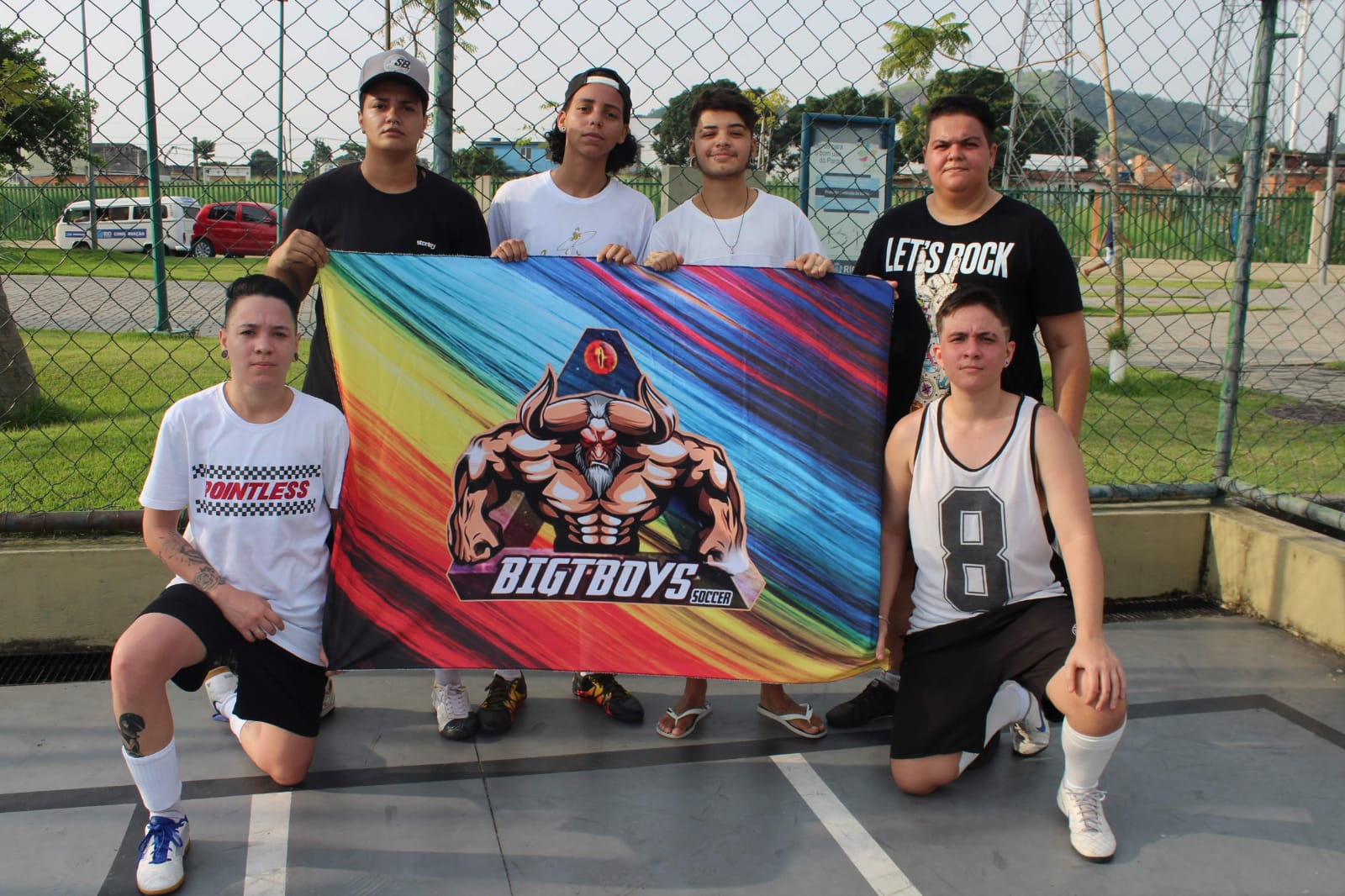
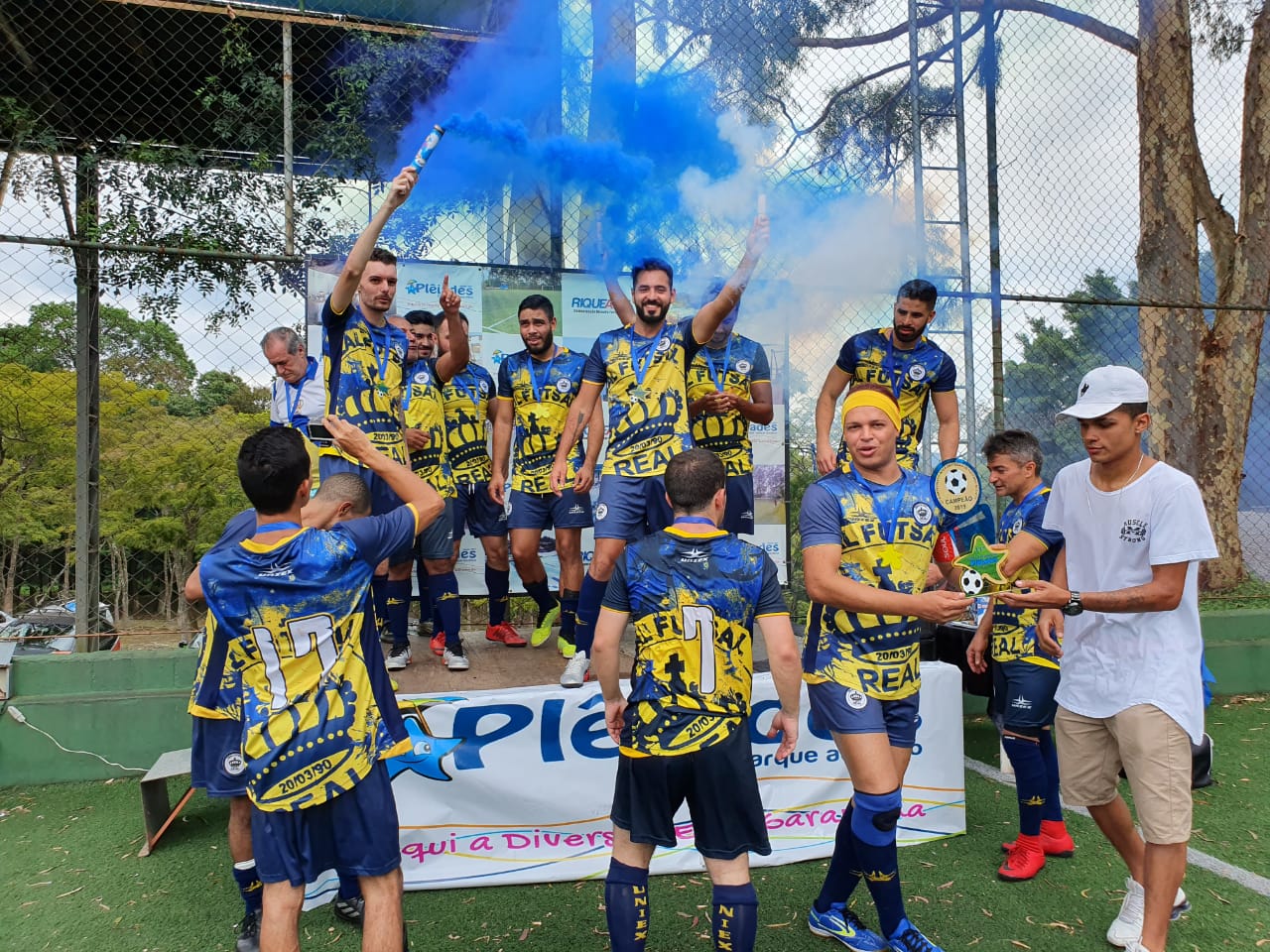
How were the teams formed?
You know that weekend when you want to play football and you don’t have enough people to form a team? Usually, the first thing we do is look for a colleague or acquaintance on social media who wants to participate in a little game. But what if the number of people is increasing every week and the frequency of the games as well?
In the case of BeesCats Soccer Boys (RJ), the beginning was through an article on television. Andre Machado, founder and president of the team, recalls that the main influence for the creation of the club was a report on Unicorns Brazil (SP). Andre liked the idea so much that he invited his friends to form a team. The success of BeesCats was such that, in just under a month, the games already attracted about 100 people, including gamers and the curious.
The vast majority of teams interviewed in Diversidade em Campo started through groups on social networks. Sometimes after a post with the following question: “Who around here likes football and doesn’t feel comfortable playing because they’re afraid of prejudice?”.
Founded in 2019, BigTBoys is the first team formed by transsexual men in the state of Rio de Janeiro. It’s creation was an initiative of Cristian Lins, producer and photojournalist. In the team, football is a space of visibility and inclusion that values acceptance and identification through sport. BigTBoys has already had its story told by several media outlets, including international ones, such as the Washington Post and Los Angeles Times.
But did they follow through on activities during the pandemic?
Like other sectors of society, fut7 teams also had their dynamics changed due to the COVID-19 pandemic. There were many strategies adopted to maintain communication and integration between different teams in this period of social distance.
Some teams chose to engage their social networks, producing lives and digital championships through Instagram. Lucas Bertullino, player and manager of Cangayceiros Futebol Clube (CE), spoke a little about the team’s participation in Big Brother Bicha Brasil (2020), an online championship organized by Dendê Futebol Clube (BA). There were about 10 teams participating, from different locations in the country – Salvador (BA), Manaus (AM), São Paulo (SP), Fortaleza (CE), Rio de Janeiro (RJ), Federal District, among others. The rules were similar to the inspirational program: weekly elimination with a combination of votes among those who considered themselves closest. “We managed to have enormous visibility through this competition”, Lucas reported when mentioning Cangayceiros’ victory in the championship and remembering the few years of age of the team, founded in May 2019.
Another online competition that engaged teams from different regions was for the choice of the most beautiful shield in Brazil (2020), organized by LiGay. The final was disputed and reached over 6,000 votes – the entire competition reached almost 100,000 votes! Cangayceiros took first place, followed by Alcateia Esporte Clube (MG).
Karyocas Club (RJ) also invested in lives and digital championships. The team prepared a calendar of lives on its Instagram profile that covered topics such as mental health, physical and technical preparation of athletes, drag queen art and the importance of sports journalism coverage on LGBT issues. In addition, it launched the KaryoQuiz Cup, a game that consisted of a series of questions asked to two participants, with the winner of the edition being the one with the most correct answers. The best part of the game was the gifts: every two mistakes, the player paid a gift chosen by the commander of the game, Rodrigo Ziegler, defender and vice president of the team.
In addition to online broadcasts, the teams also kept in touch via WhatsApp groups, sharing training sessions, tips and exchanging stickers.
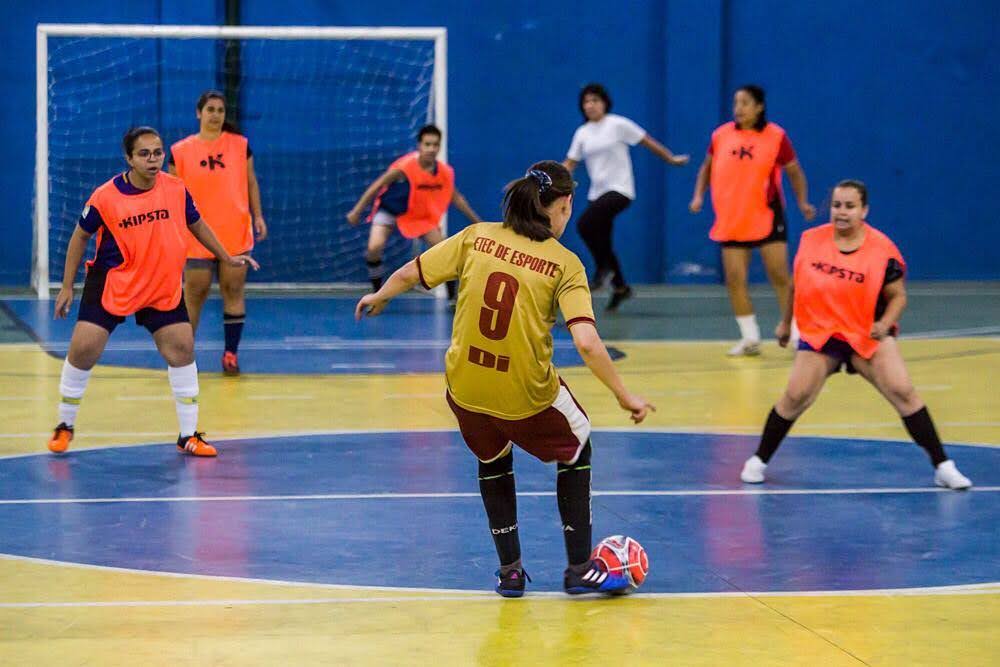
Want to share your story?
31 references have already been mapped between players, championships and teams – with regard to the latter, there are 12 teams referenced in four different states. However, we want to increase that number. Are you part of an LGBT+ team and would you like to share your experience with the Football Museum? Get in touch by email crfb@museudofutebol.org.br.
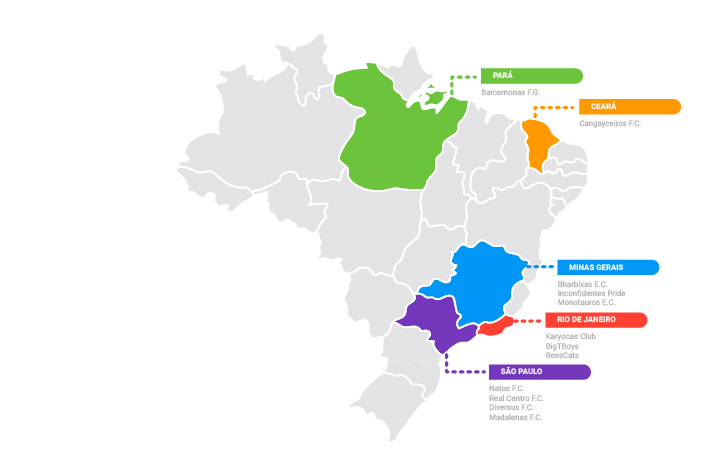
Ligia Dona e Dóris Régis
Research Assistant and Documentation Assistant – Library Brazilian Football Reference Center
We leave here a special thanks to all the interviewees and other people who contributed to the design of the project: Camila Aderaldo, Daniela Alfonsi, Lucas Tanabe and Mayara Aki


